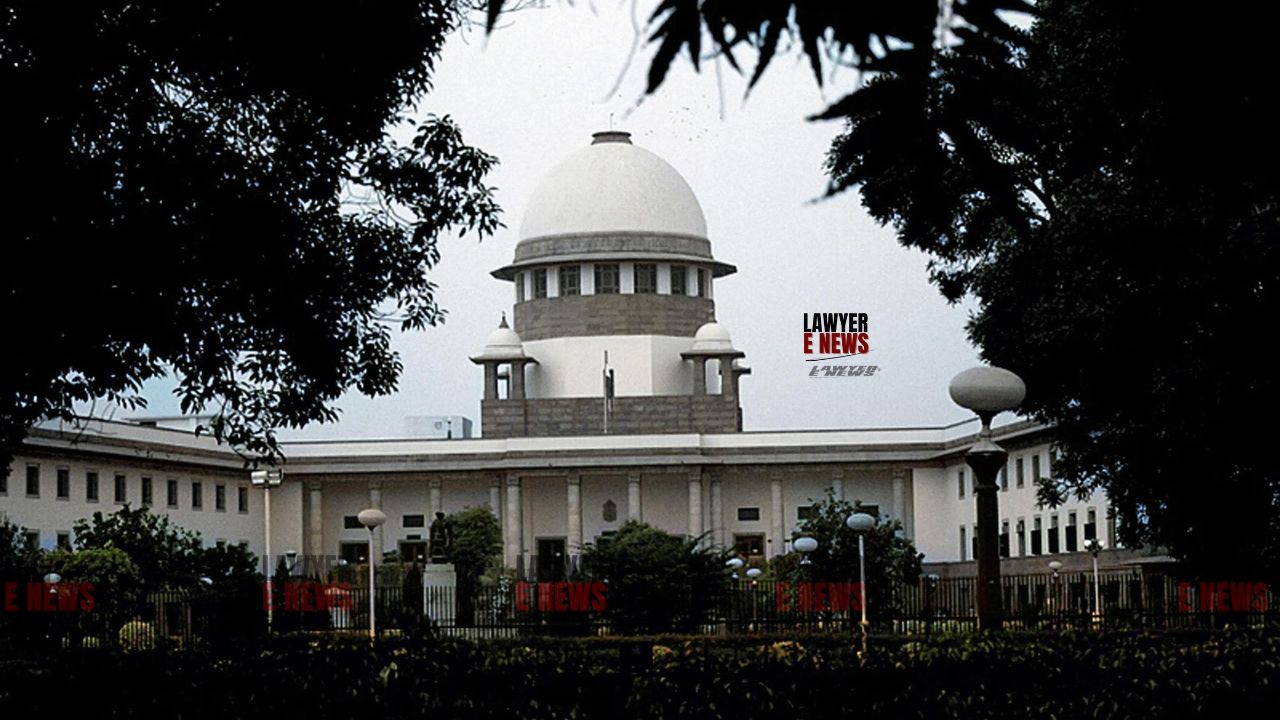-
by Admin
15 February 2026 5:35 AM



Supreme Court of India quashed criminal proceedings against appellant Mudit Jain, who was accused of fraud and forgery under Sections 420, 467, 468, and 471 of the Indian Penal Code (IPC) in relation to alleged undervaluation of stamp duty. The Court observed that the dispute should have been handled under revenue laws, specifically Section 47-A of the Indian Stamp Act, 1899, which deals with undervaluation in stamp duty, rather than through criminal prosecution. This ruling reinforces that criminal laws should not be invoked in cases where the allegations do not establish prima facie criminal intent.
Mudit Jain, along with his wife, purchased two plots of land from the same seller in October 2006. The District Registrar, Satna, alleged that by registering the sale through separate deeds, Jain had caused a loss of revenue due to undervaluation of stamp duty. Consequently, an FIR was lodged under IPC Sections 420 (cheating), 467 (forgery of valuable security), 468 (forgery for purpose of cheating), and 471 (using as genuine a forged document), along with Section 34 (common intention). The High Court had dismissed Jain's petition under Section 482 of the Code of Criminal Procedure (CrPC) seeking to quash these proceedings, leading to his appeal before the Supreme Court.
The appellant argued that even if there was undervaluation in the stamp duty, it should have been addressed under Section 47-A of the Indian Stamp Act, not through criminal provisions under the IPC.
The Court agreed, noting that criminal charges under the IPC are inapplicable in cases lacking prima facie evidence of "intentional deception or forgery." The Court held that "criminal proceedings should not be a substitute for appropriate statutory processes under revenue laws" in the absence of evidence indicating criminal intent.
Scope of Section 482 CrPC – Protection Against Frivolous Criminal Proceedings
The Court reiterated the purpose of Section 482 CrPC, which empowers High Courts to quash frivolous or vexatious criminal proceedings. Citing Mohd. Ibrahim v. State of Bihar and similar cases, the Court emphasized that criminal law should not be misused to resolve disputes that are essentially civil or administrative in nature.
The Court found the High Court’s refusal to quash the proceedings erroneous, given that the allegations pertained to revenue-related undervaluation rather than criminal conduct. "The invocation of IPC provisions in this matter is both frivolous and misconceived," the Court stated.
The Supreme Court held that disputes concerning undervaluation of stamp duty should be dealt with under Section 47-A of the Indian Stamp Act, which provides a mechanism to address such issues administratively rather than criminally.
"The District Registrar should have pursued redressal under the Stamp Act rather than filing criminal charges, making the initiation of criminal proceedings legally unfounded," the Court noted.
No Evidence of Intentional Deception or Forgery
After examining the ingredients of Sections 420, 467, 468, and 471 of the IPC, the Court concluded that no offense was made out. The registration of two sale deeds had not been objected to by any parties involved in the transactions, and no prima facie evidence of criminal intent was presented.
"In the absence of any allegation of intentional deception or fraudulent intent, the charges under IPC Sections 420, 467, 468, and 471 are wholly unsustainable," the Court ruled.
The Supreme Court quashed the criminal proceedings against Mudit Jain, stating that the allegations did not substantiate the serious criminal charges levied against him. The Court emphasized that criminal law should not be misapplied to address revenue-related issues, which have specific remedies under the Indian Stamp Act.
"Misuse of criminal law for revenue disputes is unacceptable. The appropriate statutory process under the Stamp Act should have been followed."
The appeal was allowed, the criminal complaint, FIR, chargesheet, and subsequent proceedings were quashed, and the Supreme Court directed that revenue disputes over stamp duty undervaluation should be addressed through relevant administrative channels under the Stamp Act rather than IPC provisions.
Date of Decision: October 15, 2024
Mudit Jain v. State of Madhya Pradesh & Another
